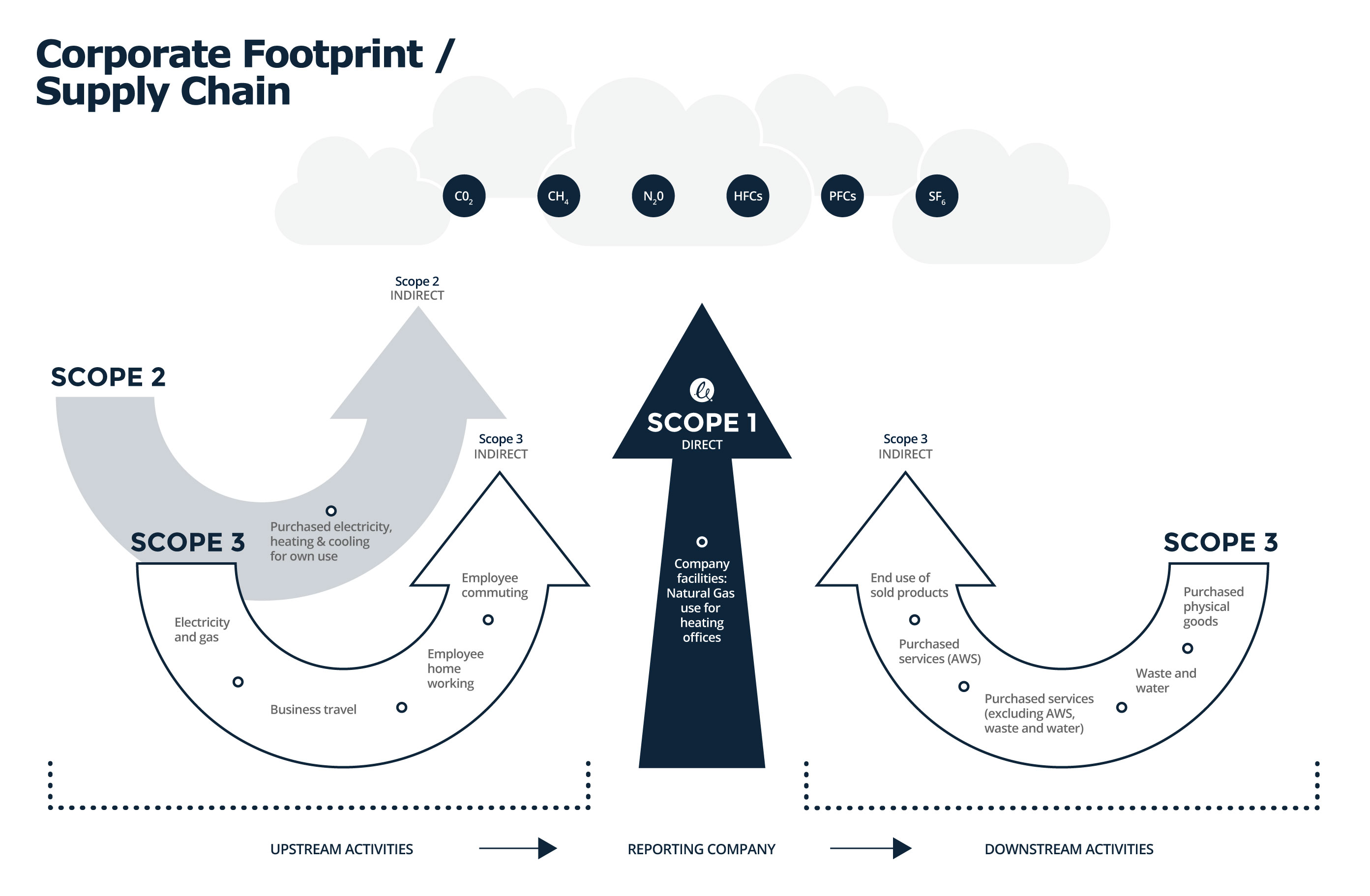Epimorphics & Our Carbon Footprint
Epimorphics Ltd is committed to adopting good sustainability practices. We recognise that, through our business activities and operations, we inevitably have environmental, social and economic impacts. Therefore, wherever practical and consistent with our business goals, we aim throughout our business activities to maximise our positive and minimise our negative sustainable development related impacts and thereby promote a more sustainable future.
Our principles
- Epimorphics is aware that sustainability is important and is committed to adopting sustainable business practises
- Sustainability impacts will be considered in all business decisions
- Practical steps and policies will be developed and used to guide day to day operations and other business decisions in all relevant areas of our activities
- Measurable sustainability goals will be defined, reported to shareholders and reviewed
As part of meeting and adopting good sustainability practises we have been reviewing and monitoring our business carbon footprint in more detail, alongside our broader environment and sustainability policy commitments.
It is widely accepted by scientists that global warming is being heavily influenced by the actions of humans and that urgent action needs to be taken.
Here at Epimorphics, we firmly believe that, as a company, we have a responsibility to assess and proactively plan to reduce and manage our emissions as much as possible. Under current regulations we are not legally required to report our Greenhouse Gas emissions as set out by the UK government’s Streamlined Energy and Carbon Reporting (SECR) policy but we are fully committed to doing as much as we can and playing our part in the wider effort.
We have published our Carbon Reduction Plan following the Procurement Policy Note 06/21 guidance on our website
Please follow the links if you would like to see more in depth information.
Goals
The goal of corporate carbon footprint assessments is to quantify, as far as possible, the GHG (Greenhouse) emissions associated with the operations of an organisation.
GHG emissions, may be direct emissions, (e.g. from burning fossil fuels on site or in corporately owned vehicles) or indirect emissions (e.g. through the use of electricity on corporate premises, business travel, purchasing of goods and services and the use of products or services by customers).
The footprinting process involves creating an inventory of the GHG emissions of an organisation and its activities. There are many ways that could be used to estimate the GHG emissions associated with these associated activities. For that reason there are standards defined for how organisations should prepare and calculate a corporate-level GHG emissions inventory (footprint).
Emissions Scope
Scope 1 – Direct emissions from sources an organisation owns or controls
Scope 2 – Indirect emissions due to the production of electricity, heat, or steam used by an organisation
Scope 3 – Indirect emissions from activities upstream and downstream, along the supply chain

OUR FOOTPRINT (October 2023 – September 2024)
Overview
For our 2023 / 2024 financial year the verified total emissions for scope 1, 2 footprint is and core 3 footprint (homeworking, business travel, employee commuting and scope 3 energy emissions) was approx. 9.57 tCO2e (location-based) and 9.33 tCO2e (market-based).
In addition we estimated our supply chain emissions in line with the UK SECR (Streamlined Energy and Carbon Reporting) methodologies. The combined total is 37.53 tCO2e (location-based), which is likely to be an overestimate due to known carbon reductions by some parts of the supply chain. Our 2023 / 2024 financial year data was independently verified by Carbon Footprint Ltd.

Corporate sustainability management
We assess, manage our environmental, social and governance (ESG) risk and compliance, and manage our corporate sustainability goals using the Ecovadis platform.
